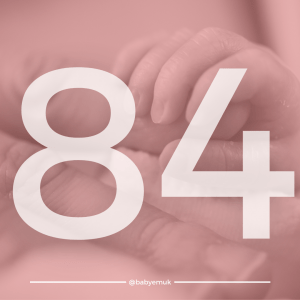Content Warning – This blog talks frankly about different types of trauma, including birth trauma. If you are sensitive to discussing these topics, you may wish to close this blog, or prepare yourself appropriately for reading. There is information at the end of this blog on how to access support if you are affected by any of the issues raised in this piece.
We are almost at the end of Birth Trauma Awareness week, which this year runs from 18th to 23rd July. The theme for this year is diagnosis and treatment.
What is trauma?
Trauma is an emotional response to a stressful event, such as a natural disaster, a physical or sexual assault, the sudden death of a loved one, or witnessing the assault of another person, e.g. a shooting or stabbing.
What is birth trauma?
The NICE Guidelines on Antenatal and Postnatal Mental Health (2014) definite birth trauma as:
“Traumatic birth includes births, whether preterm or full term which are physically traumatic… and births that are experienced as traumatic, even when the delivery is obstetrically straightforward.”
This means that even if your labour or birth did not require emergency treatment or deviation from what is biologically normal – you have experienced the event as traumatic. You may have had a birth someone else considers totally normal and not stressful – that does not mean your experience was not traumatic. Giving birth and experiencing birth trauma are very personal. Some families experience trauma after giving birth, if their babies are taken to SCBU, or NICU and are separated from them for some time.
Many women are unaware that they have experienced birth trauma until weeks, months, or even years after the fact. Shock and denial are common in the early days after a traumatic experience.
Birth trauma can also cause physical symptoms such as nausea, headaches, heart palpitations and symptoms of mental illness such as postnatal anxiety, depression or OCD.

According to research carried out by the Birth Trauma Association in 2021, 84% of parents are living with the consequences of birth trauma without effective treatment as a solution, and “84% of respondents with physical birth injuries said it had impacted their self esteem and body confidence.” (BTA, 2022)
How can you support someone with birth trauma?
Listen but don't judge. Let them speak openly about their experience – when they are ready –without giving your perspective or advice.
Validate their feelings. Telling someone it ‘can't be that bad' or ‘at least your baby is here safely' can totally invalidate the difficult and complex feelings involved with birth trauma. How a mother feels absolutely matters – yes, it's important that baby arrives safely – but this should not ignore the very real desire of a mother to give birth in a specific way and having this decision removed from her, or the lived experience of the fear, stress, and abject terror many women go through delivering their babies.
Help them access the help and support they need. This may involve therapies such as EMDR or TFCBT, which require specialist training and supervision. Encourage parents to thoroughly check the qualifications of anyone they are working with after a traumatic birth, and that they are appropriately supervised by someone specialising in trauma. Some parents may also require medication.
Connect with organisations such as The Make Birth Better Project ,the Birth Trauma Association and MASIC (for women with birth injuries).
If you want to learn more about birth trauma and perinatal mental illness, we are offering a 20% discount on our Perinatal Mental Health Training (Including postnatal depression and birth trauma) until Sunday 24th July 2022. Use code FORTHE84PERCENT.

